The Rise of Animals and Descent of Man, 16601800
The Rise of Animals and Descent of Man, 16601800
Toward Posthumanism in British Literature between Descartes and Darwin
John Morillo
University of Delaware Press
Newark
Published by University of Delaware Press
Copublished by The Rowman & Littlefield Publishing Group, Inc.
4501 Forbes Boulevard, Suite 200, Lanham, Maryland 20706
www.rowman.com
Unit A, Whitacre Mews, 26-34 Stannary Street, London SE11 4AB
Copyright 2018 by John Morillo
All rights reserved . No part of this book may be reproduced in any form or by any electronic or mechanical means, including information storage and retrieval systems, without written permission from the publisher, except by a reviewer who may quote passages in a review.
British Library Cataloguing in Publication Information Available
Library of Congress Cataloging-in-Publication Data Available
ISBN: 978-1-61149-673-4 (cloth : alk. paper)
ISBN: 978-1-61149-674-1 (electronic)
 The paper used in this publication meets the minimum requirements of American National Standard for Information SciencesPermanence of Paper for Printed Library Materials, ANSI/NISO Z39.48-1992.
The paper used in this publication meets the minimum requirements of American National Standard for Information SciencesPermanence of Paper for Printed Library Materials, ANSI/NISO Z39.48-1992.
Printed in the United States of America
For all the other animals who make this world a better place.
Contents
Acknowledgments
I would like to thank the College of Humanities and Social Sciences Research Office and the English Department at North Carolina State University for the initial research awards for books and a new computer, and then for a full years scholarly leave that made this book possible. I would particularly like to thank Dr. Tony Harrison, our outstanding English Department Head, for his unflagging support of this project and confidence in my ability to complete it. I would like to thank my colleagues, especially Marc Dudley, whose friendship and advice kept me inspired and on-task with periodic lunches and conversations as the book developed; Peter Link, who generously took time out of his teaching and summer to read chapters and keep my eye on reaching as broad an audience as possible; James Mulholland, Rebecca Walsh, and Andrew Johnson, who read portions of the manuscript and attended presentations of the work in progress, or just listened patiently as I rattled on about it. North Carolina State Universitys Honors Program was instrumental early on in giving me a blank slate within their course list that inspired me to turn an interest in Cowper into a course called Representing Animals. My honors students in that course offered very useful feedback for what young people found interesting in historical animal studies literature. I would like to thank my MA English students from a 2012 seminar on the Eighteenth-Century Novel, especially Jake Clayton and Amber Woolsey. They all put up with my decision to begin with an odd text called The Description of a New World , Called the Blazing World, and then helped inspire me to work on Cavendish and animals.
It would have been impossible to write this book without the North Carolina State University Librarys investment at the start of this century in some indispensable databases from Gale-Cengage: Eighteenth-Century Collections Online , and the British Library 17th18th Century Burney Collection Newspapers , as well as Chadwyck-Healeys Early English Books Online . To see the countless rare texts within these collections at the click of a mouse still amazes me. Without the wise decisions of Dr. Susan Nutter to pursue a digital library without walls, Dr. Darby Orcutt to acquire these expensive and now indispensable databases, and my colleague and friend Gregory Raschke to maintain them, our D. H. Hill library would not have moved so well and quickly into the paperless world of twenty-first-century research. It has truly transformed how scholarship can be done. I would also like to thank Hill Librarys William Cross for his help with the legal wrinkles of permissions, and Isabella Donadio at Harvard Museums for so efficiently granting me permission to use the digital image of Antonio Tempestas etching of Orpheus.
My thanks to Dr. Edward Larkin at University of Delaware Press for first taking interest in the project, and to his successor as editor, Dr. Julia Oestreich, for sticking with it as it developed. Thanks also to readers at the press for helpful and timely suggestions for revisions.
Within the circle of family, big thanks to my brother Stephen, Professor of History at Wabash College, for savvy guidance with letters and queries, and to my sister-in-law Dr. Lynne Miles-Morillo for excellent advice and sharp reading at the crucial proposal stage. Huge thanks to my wife, Dr. Andrea Atkin, for many readings and editorial suggestions, and to her and my son William for helping us maintain a nearly Cowperian menagerie of cats, snakes, newts, toads, fish, and chickens, and for generally putting up with my zoological and scholarly enthusiasms for many years. A final and deep thanks to my parents: my late father Dr. Marvin Morillo, for proving that one could stay happy and sane if your job was English Professor, and my mother Dr. Carolyn Morillo, for encouraging me to read more philosophy, and for inspiring early and feeding often my love of animals and the outdoors.
Raleigh, NC, June 2017
Introduction
British Animal Discourse between Cartesian and Darwinian Bookends
By properly comparing ourselves with brutes, we shall also learn, that useful lesson, to know ourselves, and set a due value upon our own situation in the universe.
Man , March 12, 1755, issue 11
The Rise of Animals and the Descent of Man explains how British animal discourse in the eighteenth century offers important intellectual alternatives to narratives about the meaning of animals in early modern Europe that have centered on Descartes. British animal discourse remains informed by Cartesianism, but often reacts to it by recognizing that feelings are as important as reason when it comes to defining animal life and its relation to human life. The very thing that enables this British discourse to deviate from Descartes, its focus on fine feeling as a register of moral life empowered by sensibility and sympathy, grows complicated by cultural fears that too much kindness to animals can entail too much kinship with them. British animal discourses complex negotiations with sensibility, as well with as multiple philosophical and theological traditions, enable it to move away from Descartes, and haltingly toward posthumanism in the work of those rare few able to imagine animal feelings as a warrant for revising human moral actions. However, in far more works representing the wider middle ground of British literate culture, the same discourse works to try to preserve human distinction whenever it is perceived to be at riska fear about a new fall of man having been exacerbated by the rise of evolution in the daring ideas of Erasmus Darwin at the end of the eighteenth century.
Consequently, at the near end of this book about human-animal relations in eighteenth-century British letters lies a Frenchman, Ren Descartes, because his 1637 Discourse on Method developed an animal-as-machine hypothesis so influential as to have remained the indispensable text in much writing about animals in the eighteenth century, and in the theory of early modern human-animal relations. As Linda Kalof notes, it certainly has had substantial implications for the moral and ethical issues surrounding the animal question. The Discourse notoriously and influentially argued that animals were equivalent to machines because they could not have souls. In brief, the Cartesian hypothesis fuses philosophy, physiology, and theology to preserve human distinction. It is outlined well by Matthew Senior, the editor of the eighteenth-century volume of Kalofs ambitious and comprehensive Cultural History of Animals series, A Cultural History of Animals in the Age of Enlightenment (2007): Descartes radically materialist physiology allows him to interpret the passions expressed by animals as unthinking, unfeeling responses to their environment. Non-human animals are soulless stimulus/response machines. Descartes grounds human distinction from other animals metaphysically, in the souls capacity for reason and language, but also materially, in the difference between human and animal brains, as Senior explains:
Next page
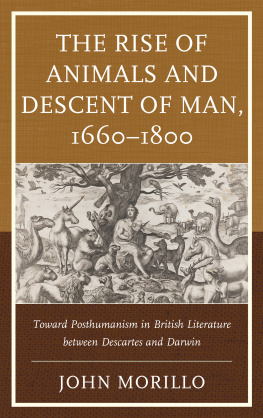
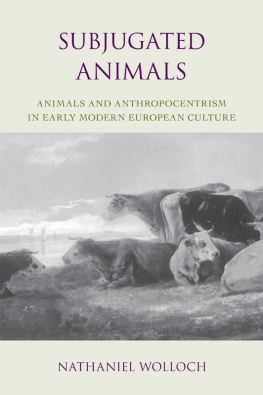

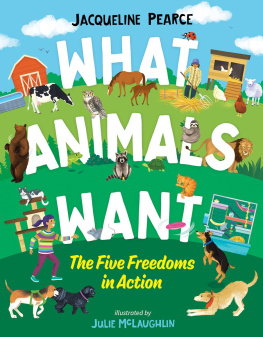


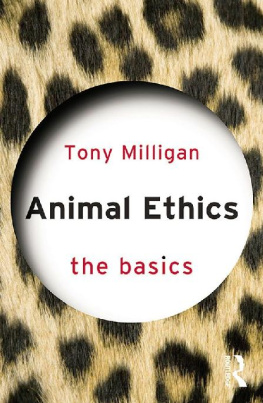
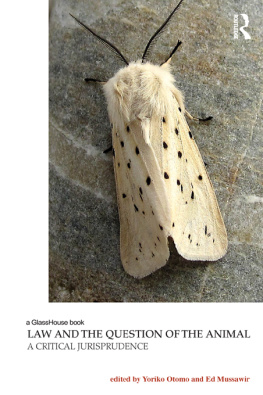
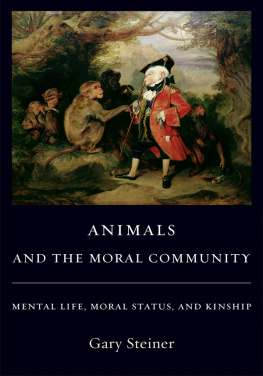
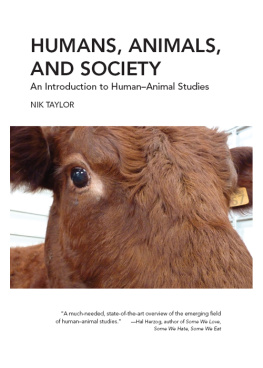
 The paper used in this publication meets the minimum requirements of American National Standard for Information SciencesPermanence of Paper for Printed Library Materials, ANSI/NISO Z39.48-1992.
The paper used in this publication meets the minimum requirements of American National Standard for Information SciencesPermanence of Paper for Printed Library Materials, ANSI/NISO Z39.48-1992.